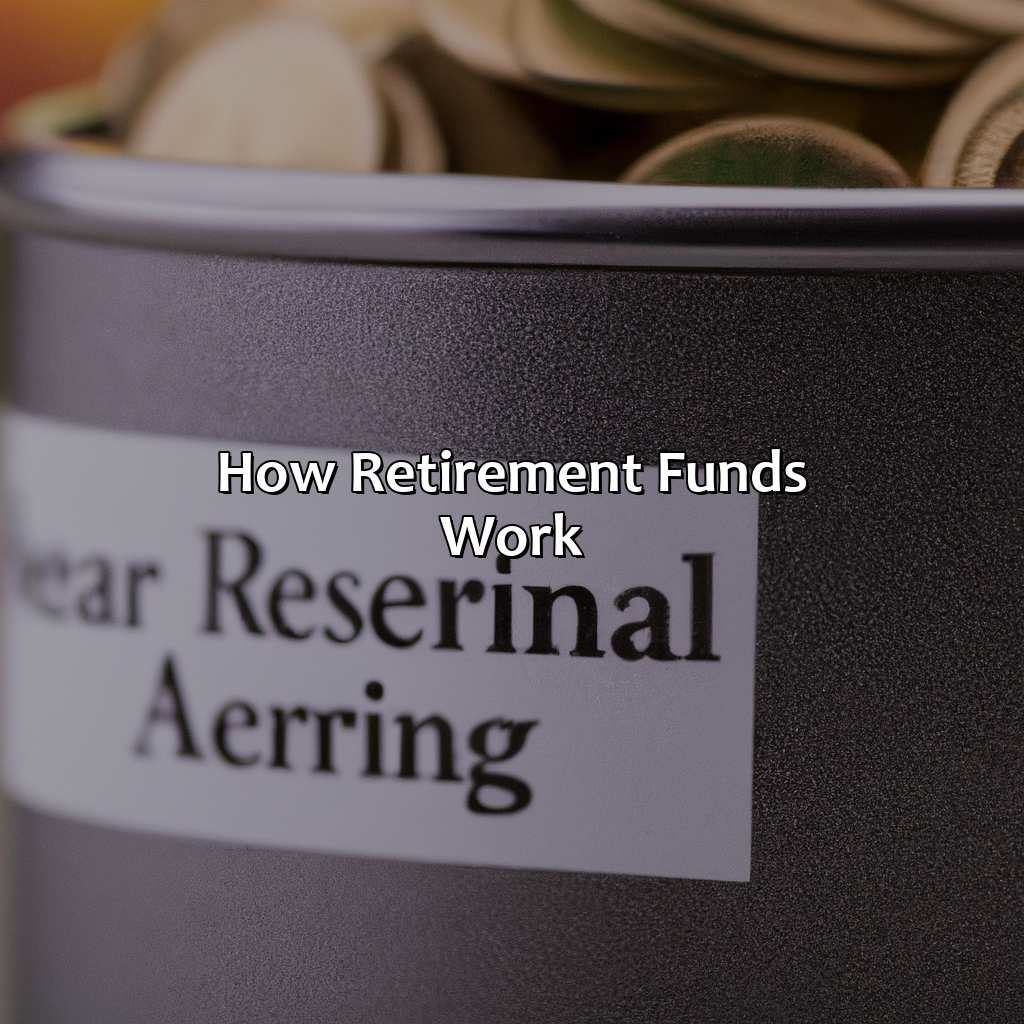How Long Does It Take To Get Your Retirement Money?
Key Takeaway:
- Retirement funds can be accessed at a certain age: Depending on the type of retirement plan, individuals can begin accessing their funds at different ages. Traditional IRA and 401k plans usually allow for penalty-free withdrawals starting at age 59 1/2, while Social Security benefits can begin as early as age 62.
- Factors can affect the timeframe for accessing retirement funds: Early withdrawal penalties, rollovers and transfers, and employer plan policies can all affect the length of time it takes to receive retirement funds. It is important to understand these factors before making any decisions about accessing your retirement funds.
- It is essential to plan ahead for retirement: Understanding how retirement funds work and when they can be accessed can help individuals plan ahead and make the most of their retirement savings. Consulting with a financial advisor can also provide valuable guidance for retirement planning.
Are you nearing retirement and wondering how long it will take to access your retirement funds? You don’t have to feel alone – this is a common concern. Discover the answers here now, so you can plan for retirement with ease.
How Retirement Funds Work
Learn how retirement funds function! Study the types of retirement plans there are. Also, know what age you must be to access your funds. These parts explain the process. Get a detailed overview of the retirement plans you can select and the age when you can make withdrawals with ease.

Image credits: retiregenz.com by Joel Jones
Types of Retirement Plans
Retirement Investment Plans
Retirement investment plans are defined benefit or contribution plans created to provide employees with income after they retire. These plans come in several types, each with its own set of rules and tax implications:
- 401(k) plans
- IRA retirement accounts
- SIMPLE IRA plans
- Simplified Employee Pension (SEP) plan
- Pension Plan
- Deferred Annuity Scheme
These investments allow individuals to save for retirement on a pre-tax basis, which affords them significant tax benefits now while working, and then withdrawals from the account later will be taxed. Bank savings accounts, stocks and mutual funds, bonds, rental property and other investments can also make up a part of your personal retirement strategy.
Investing in such schemes is an effective way to ensure that you will have financial security when you retire. Many people make the mistake of waiting until later in life to start investing in their retirement future but it is wise to invest as soon as possible so as to reach the desired total amount.
A friend once told me about how she had started investing early and as a result, had become financially stable much faster than many others around her who had waited until later in life. “Retirement funds are like a membership to a club you never wanted to join, but at least you get discounts on early bird specials once you hit a certain age.”
Age Requirement to Access Funds
The rules regarding the minimum age for accessing retirement funds require attention. In the US, individuals may only access their retirement funds after reaching the age of 59 and a half. Accessing funds beforehand results in penalties, taxes and strong restrictions on future withdrawals.
It is important to remember that unlike investments or brokerage accounts, 401(k)s are designed for long-term savings and aren’t accessible for casual use. It is wise to create an emergency fund instead for short-term expenses.
Retirement plans vary by employer and may have different regulations concerning early retirement withdrawal or hardship distributions. They enable employees with pressing financial difficulties to collect vital sums from their previously accumulated benefits package.
Always seek advice from a professional before making any changes to your retirement plan. One tip on how to stay ahead of commitments or progress towards your goals would be to schedule regular updates with a financial consultant regarding investment preferences available within the framework of your workplace retirement plan.
Retirement funds: the only thing slower than a turtle race…but with less excitement.
When to Expect Your Retirement Funds
Curious when you can get your retirement funds? Check out “When to Expect Your Retirement Funds“. It has two sub-sections:
- Timeframes for Traditional IRA and 401k Plans
- Timeframes for Social Security Benefits
Find out the projected time frames for getting benefits from each retirement plan. Plus, get the lowdown on when to expect your social security payouts.

Image credits: retiregenz.com by James Jones
Timeframes for Traditional IRA and 401k Plans
When can You Expect Your Retirement Funds to Arrive?
Retirement funds vary based on the type of account, amount invested, company procedures, and market fluctuations. Here’s a breakdown of when to expect your traditional IRA and 401k plan.
| Account Type | Withdrawal Process | Timeframe for Payment |
|---|---|---|
| Traditional IRA | Check mailed to the account holder or deposited into their bank account | Within ten days of withdrawal request |
| 401k Plan | Directly transferred to the beneficiary’s bank account or mailed a check | Within two weeks after the end of the calendar quarter where the withdrawal was requested |
While some companies offer quick turnaround times, others may take longer due to administrative procedures and balance requirements. Keep in mind that early (before age 59 1/2) withdrawals from these accounts may incur taxes and penalties.
Did you know that beyond traditional options like IRAs and 401ks, there are other ways to save for retirement such as annuities and pension plans? Make sure you understand all the options available to you before making any long-term financial commitments.
One retiree sought retirement funds through an annuity but learned later that it offered unfavorable investment choices with high fees. Conduct thorough research to ensure you select reputable companies with good reviews.
Looks like Social Security benefits will be arriving just in time to pay for my funeral.
Timeframes for Social Security Benefits
Social Security Benefits are investments in the long-term financial security of workers and their beneficiaries. The timeframes for receiving this payment vary based on an individual’s age, work history, and the year they were born. Factors such as filing date and processing time also affect the timeframe.
Once an applicant files for Social Security Benefits, it can take up to three months to receive payment. Delayed retirement credits may increase payment amounts if a retiree postpones receiving benefits beyond full retirement age. Younger beneficiaries may be subject to income restrictions that impact the amount of their payments.
It’s important to note that waiting until the full retirement age yields a higher monthly benefit than taking early retirement benefits. This is because early retirees receive lower monthly payments while cost-of-living adjustments still apply for each year someone delays benefits until age 70.
According to AARP, Social Security benefits represent about 33% of seniors’ incomes in America, making timely access to these funds critical.
Why wait for retirement to lose some hair? The factors affecting your retirement funds timeline may make you pull them out sooner.
Factors That May Affect the Timeframe
Let’s dive into how your retirement funds time frame is affected. Three key elements: early withdrawal penalties, rollovers & transfers, and employer plan policies, all play a role. It’s important to understand the effects of each. Bad decisions can have serious ramifications.

Image credits: retiregenz.com by Harry Duncun
Early Withdrawal Penalties
Premature Withdrawal Fines and Penalties
Getting your retirement money in advance might seem attractive, but beware of the penalties that come with early withdrawals. These fines can vary depending on multiple factors such as age, type of account, and reason for withdrawal.
If you are under 59 1/2 years old, you may have to pay a ten percent penalty fee plus taxes. Additionally, if you hold a certificate of deposit (CD) or an individual retirement account (IRA), penalties may vary based on how long it has been established and the amount withdrawn.
Withdrawals due to disability or certain medical expenses might be exempt from fines. However, plan wisely and consult with a financial professional to avoid harsh penalties.
To avoid early withdrawal fines, leaving your retirement investments untouched until you retire is advised. If necessary, waiting for the completion of the age limit for penalty-free withdrawals would work as well. Consult your financial advisor to ensure a comfortable transition into retirement without worrying about penalties.
Transferring your retirement funds is like trying to move a sleeping elephant, it’s slow but eventually it’ll get there.
Rollovers and Transfers
Transfers between retirement accounts may impact the timeline for receiving funds. Here are a few points to consider:
- When transferring between IRA accounts, the process typically takes 3-10 business days.
- If you are rolling over funds from a 401(k) to an IRA, the process can take up to six weeks.
- Your current retirement account provider may require additional paperwork or steps to complete a transfer.
- Some providers charge fees for transfers or rollovers.
- Transferring or rolling over funds too close to your expected retirement date could delay access to your retirement money.
It’s important to keep in mind that each financial institution has its process and requirements, which could affect how long it takes to receive your funds. Therefore, it’s crucial to communicate with all parties involved in the transfer process.
A man once decided it was time for him to retire but realized he needed money from multiple accounts. He started transferring funds between accounts without verifying the transfer timelines, resulting in delays. When he finally did realize his error, he had lost valuable time and was unable to access his full retirement money when he needed it. It’s important always to check with your provider before initiating any transfers or rollover of funds.
Your employer’s retirement plan policies may make you feel like you’re in a maze – with no cheese at the end.
Employer Plan Policies
Retirement payout policies firmly depend on an employer’s regulations. Each company manages its retirement plan, which outlines the restrictions and benefits that will affect the timeframe to obtain retirement money. Nevertheless, most plans give employees the flexibility to withdraw funds once their service period is over; it might take a few weeks or several months before payouts process.
Companies offer comprehensive compensation packages that include retirement planning options. An employee could have a defined benefit plan (pension) or a defined contribution plan (401k). The pension aims to provide set payouts every month during retirement. On the other hand, 401ks are individual investment accounts established by an employer with employee contributions that will mature into investment gains over time.
Several employers now offer immediate vesting retirement plans in addition to their traditional programs; this means when an employee leaves employment for any reason, they become eligible for the balance of the account’s assets without deductions after completing 2-3 years of service.
It is noteworthy that many firms such as Enron and WorldCom had catastrophic bankruptcies, which led to employee pensions evaporating along with retaining work positions. As companies struggle under debts, they may choose to delay payments or eliminate them altogether leaving individuals in financial crises.
Five Facts About How Long It Takes To Get Your Retirement Money:
- ✅ The time it takes to get your retirement money depends on the type of retirement account you have. (Source: The Balance)
- ✅ It can take anywhere from a few days to several weeks to receive your retirement funds. (Source: Investopedia)
- ✅ The Internal Revenue Service (IRS) sets guidelines for when retirement funds must be distributed. (Source: Bankrate)
- ✅ If you take a lump sum distribution instead of regular payments, you may be subject to higher taxes. (Source: AARP)
- ✅ You may be charged fees for early withdrawal of retirement funds before the age of 59 and a half. (Source: US News)
FAQs about How Long Does It Take To Get Your Retirement Money?
How long does it take to get your retirement money after you retire?
It usually takes around 2-6 weeks to receive your first retirement pension payment once you retire, provided that you’ve met all the eligibility requirements. However, the exact timeline may vary based on several factors such as the type of retirement plan, the processing time of your employer or the retirement plan administrator, and the payment method you’ve chosen.
What is the typical processing time for a 401(k) withdrawal after retirement?
The processing time for a 401(k) withdrawal after retirement depends on the policy of your 401(k) plan administrator. Usually, it may take 2-3 weeks to process a retirement withdrawal request, but it may take longer if there are delays in verification of eligibility or documentation.
How long does it take to receive Social Security retirement benefits after retirement?
You can start receiving Social Security retirement benefits as early as age 62, but the amount you receive may be less than your full retirement benefit if you opt for early retirement. The processing time for Social Security retirement benefits may vary, but typically it takes around 2-3 months to start receiving benefits after you’ve filed your application
What is a rollover and how long does it take to rollover retirement funds?
A rollover is the transfer of funds from one retirement account to another. A rollover can take anywhere from a few days to a few weeks to complete, depending on the complexity of the transaction and the institutions involved. Generally, the transfer process begins once the new account is established and the paperwork is received and processed.
How long does it take to get your pension after retirement?
The time it takes to receive your pension after retirement can vary depending on your pension provider. Typically, it takes around a month or two to set up your pension payments and start receiving benefits.
Can I get my retirement money immediately after retirement?
No, you cannot typically get your retirement money immediately after retirement. The process of receiving retirement benefits involves applying for benefits, verification of eligibility, and processing of paperwork, which can take several weeks or several months depending on the type of retirement plan, the provider, and the payment method you’ve chosen.




